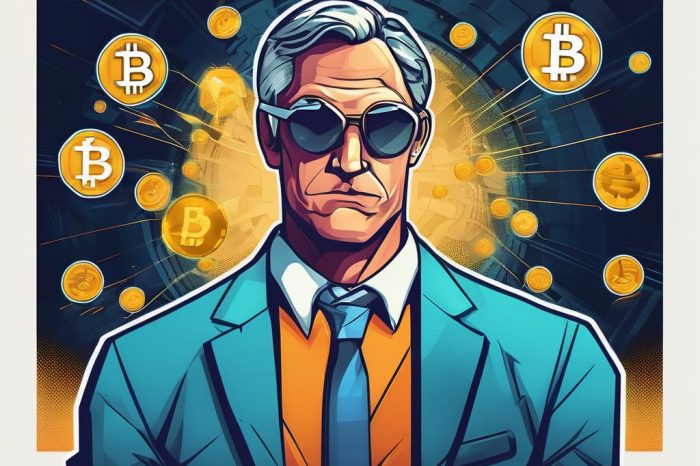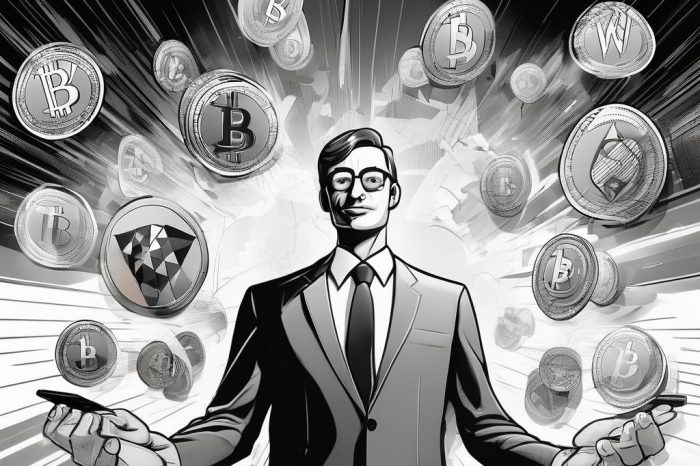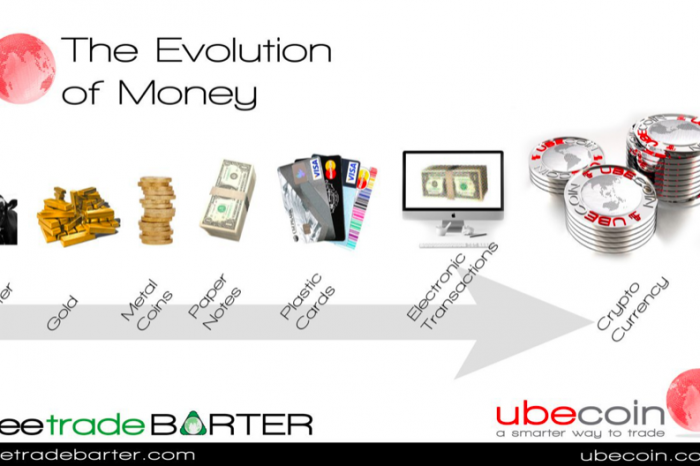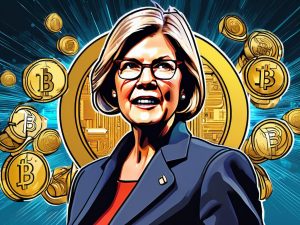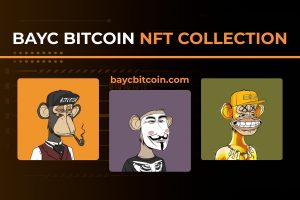Ethereum Co-Founder Joseph Lubin Bashes EOS, Dfinity, Polkadot, Cosmos, says Only Ethereum Viable as a Global Settlement Layer
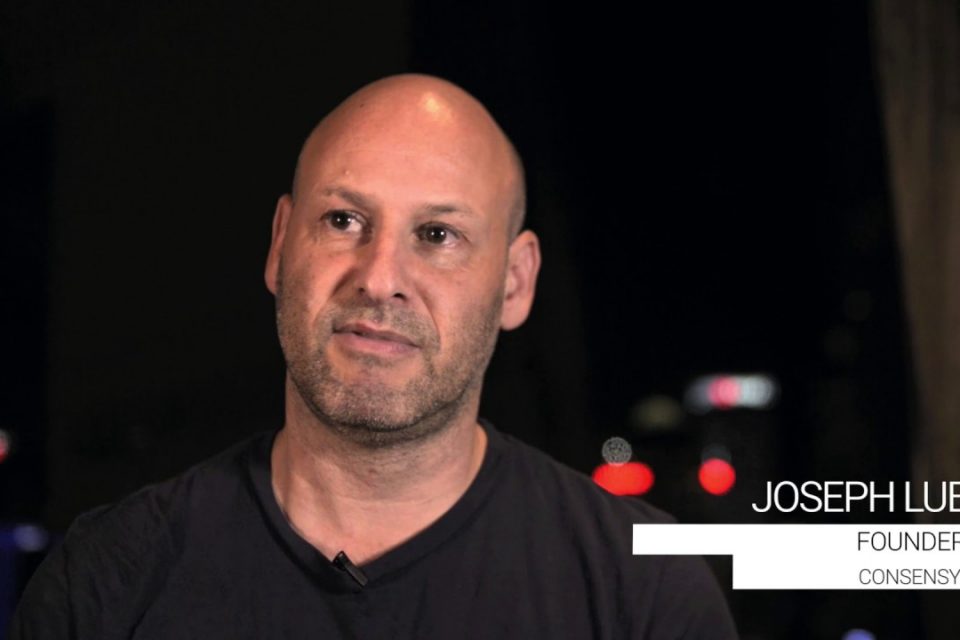
Ethereum may become the only viable ‘global settlement layer’ according to Joseph Lubin, founder of ConsenSys and one of the original co-founders of Ethereum.
Ethereum is going through some tough times with increased competition from other smart contract platforms and also its internal governance issues.
While many other Blockchain solutions have focused on scalability, onchain governance, more centralized governance structures, transactions per second Ethereum is not compromising on its decentralization vision to accelerate the implementation of scalability solutions and efficiency. Many key actors in the Ethereum ecosystem strongly believe in decentralization and have restrained from the “move fast break things” motto of Silicon Valley.
Paraphrasing his speech (source: Trustnodes) at Deconomy, Lubin believes the decentralization feature of the Blockchain makes it the current undisputed leader of technology. There exists no global, coherent financial system. It is simply a network of ‘walled gardens’. Settlement platforms like eBay, PayPal, MasterCard, Amazon, GooglePlay and the App Store aren’t really concerned about the benefits to the consumer, but on some blockchain platforms, a developer can use the software in seconds, for a meager amount, any time the user wishes to access it, without any permission.
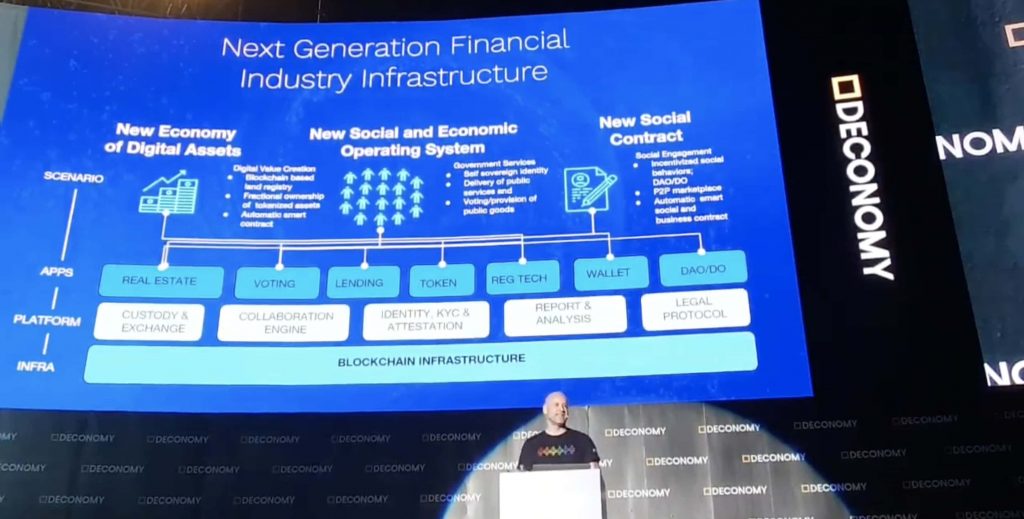
Image Source: Trustnodes
Ethereum is a platform that ‘nobody and everybody owns’. Keeping in mind freedom, choice and maximal trust, Ethereum, is an optimal choice for global settlement layer.
Joseph Lubin highlighted the flaws of various competitive platforms available in recent times.
On Hyperledger Fabric
“Fabric can issue tokens, but only for narrowly circumscribed situations. Fabric technology promotes platform locking.
On R3’s Corda
R3’s Corda is blockchain inspired software for mostly banking industry applications. It is more about point to point trust, than a shared source of truth. Corda can issue tokens, but only for narrowly circumscribed situations and Corda as a technology promotes platform locking.
On EOS
EOS is a platform controlled by 21 crypto bros and is not all that decentralized. They can collude and censor if they wish. Governments and other well-resourced actors can bribe them or force them to act against their will and against the well being and the security of the people using the platform. It has been argued that if these Block Producers start behaving badly, they will be voted out and that is the main source of decentralization in the system.
On Polkadot
The Polkadot system is being built by Parity. Polkadot will achieve scalability by having one main heartbeat chain, the Relay Chain, with multiple para chains hanging off it. The Polkadot worldview sees Ethereum connected as a potential virtual Parachain via a bridge. For any Parachain to become attached to the Polkadot Relay Chain, it must be voted in by the holders of dots, the Polkadot system token.
One can imagine a parachain choosing to be permissionless in allowing anyone to upload a Dapp, but ultimately the dot holders might take issue with this as they might be considered by authorities to be responsible. So it would probably be too dangerous of a policy for a parachain to offer. It is likely that this will be a permissioned and a highly controlled blockchain platform.
On Cosmos
Cosmos doesn’t really propose a base trust layer, it seems more focused on enabling different sovereign platforms to interoperate side by side and it doesn’t appear there will be much interoperation between platforms in the next few years beyond enabling tokens to move back and forth across network boundaries.
On Dfinity
Dfinity is less interested in being a global base trust and settlement layer and more like a somewhat decentralized AWS replacement.”
Discuss this news on our Telegram Community. Subscribe to us on Google news and do follow us on Twitter @Blockmanity
Did you like the news you just read? Please leave a feedback to help us serve you better
Disclaimer: Blockmanity is a news portal and does not provide any financial advice. Blockmanity's role is to inform the cryptocurrency and blockchain community about what's going on in this space. Please do your own due diligence before making any investment. Blockmanity won't be responsible for any loss of funds.



